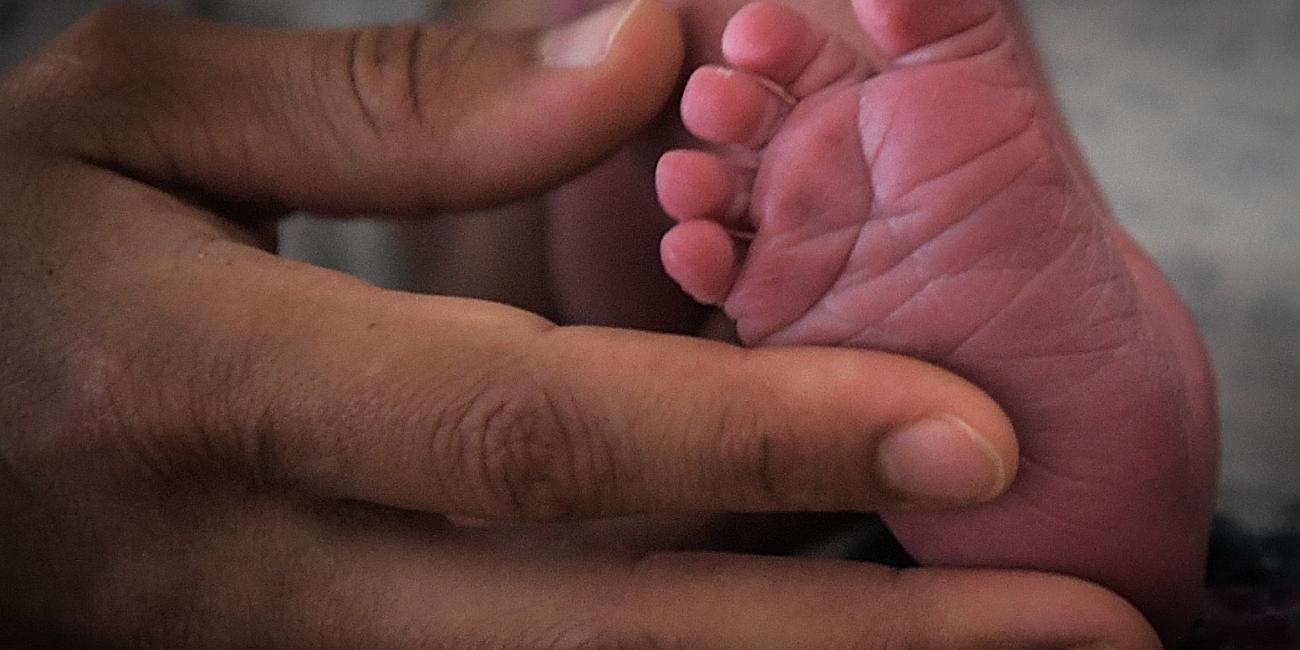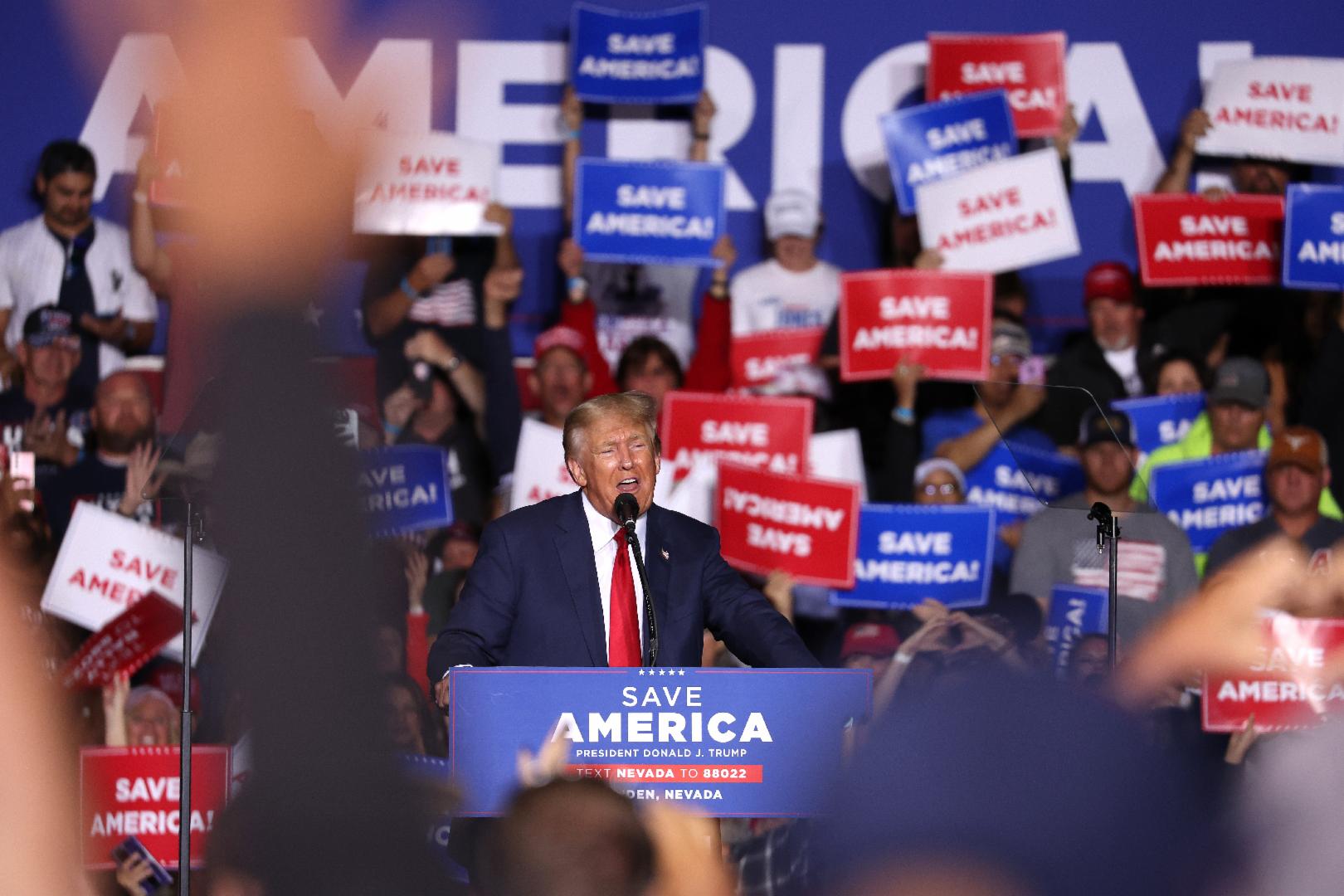
National Archives refutes Trump claims on presidential documents
- This article is more than three years old.
- Published on October 17, 2022 at 23:26
- 4 min read
- By Bill MCCARTHY, AFP USA
“George H.W. Bush took millions of documents to a former bowling alley and a former Chinese restaurant, where they combined them," Trump said during an October 8, 2022 rally in the state of Nevada. "A Chinese restaurant and a bowling alley. With no security and a broken front door.”
The FBI executed a court-approved search of Trump's Mar-a-Lago estate in August 2022 following efforts by the US government to secure all documents removed after his presidency -- and after his legal team signed a statement saying all classified materials had been returned to the appropriate federal agency.
Trump, telling the crowd at his rally that he was the victim of "a two-tier system of justice," suggested the elder Bush and other former presidents of both parties should be prosecuted over their handling of documents.
"Bill Clinton took millions of documents from the White House to a former car dealership in Arkansas," Trump claimed.
He added that "George W. Bush stored 68 million pages in a warehouse in Texas" and that Barack Obama "moved more than 20 truckloads -- over 33 million pages of documents, both classified and unclassified -- to a poorly built and totally unsafe former furniture store located in a rather bad neighborhood in Chicago, with no security."
But in an October 11 statement, the National Archives and Records Administration (NARA) rejected those claims.
The National Archives said it assumed custody of all presidential records from the George H.W. Bush, Clinton, George W. Bush and Obama administrations as soon as they left office, in accordance with the Presidential Records Act of 1978.
NARA -- not the presidents themselves -- moved those documents to temporary facilities leased in locations near their presidential libraries, the independent federal agency said.
"All such temporary facilities met strict archival and security standards, and have been managed and staffed exclusively by NARA employees," the statement says. "Reports that indicate or imply that those presidential records were in the possession of the former presidents or their representatives, after they left office, or that the records were housed in substandard conditions, are false and misleading."
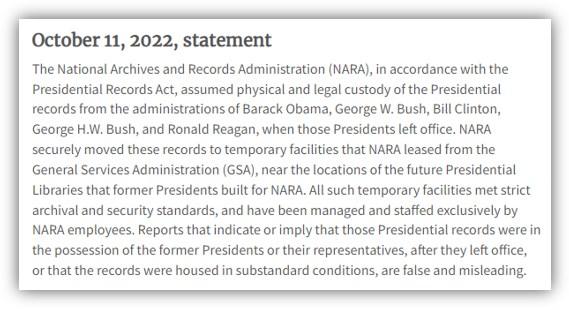
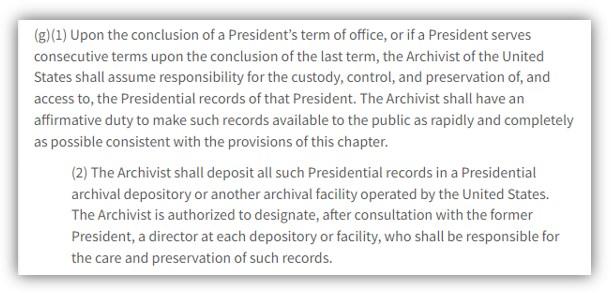
The National Archives issued similar statements in August and September rejecting Trump's claims about Obama. Experts also told AFP that Trump's allegations are inaccurate.
"Previous presidents have handled their records appropriately and according to law and national archives directives," said Benjamin Hufbauer, an associate professor at the University of Louisville and expert on presidential libraries.
AFP reached out to Trump's office and his Save America political action committee (PAC), but no response was forthcoming.
A bowling alley, a warehouse and a furniture store
Under federal law, the National Archives takes custody of all presidential documents when a president's term ends.
"Once the National Archives has these records, they need to be housed somewhere until the president and his or her supporters have built a presidential library," said Timothy Naftali, an associate clinical professor at New York University and the former founding director of the Richard Nixon Presidential Library and Museum in California. "They have to bring the space up to archival preservation standards, and they have to ensure that the space is secure."
Former president Ronald Reagan's records, for example, were temporarily located in a converted pasta factory, according to NARA.
In the elder Bush's case, the National Archives converted a former bowling alley into a warehouse. Bowling lanes became shelves, and a next-door Chinese restaurant turned into additional space.
The warehouse was located in College Station, Texas near the site of the George H.W. Bush Presidential Library and Museum. Uniformed guards patrolled the facility, which was outfitted with additional security features, according to media reports.
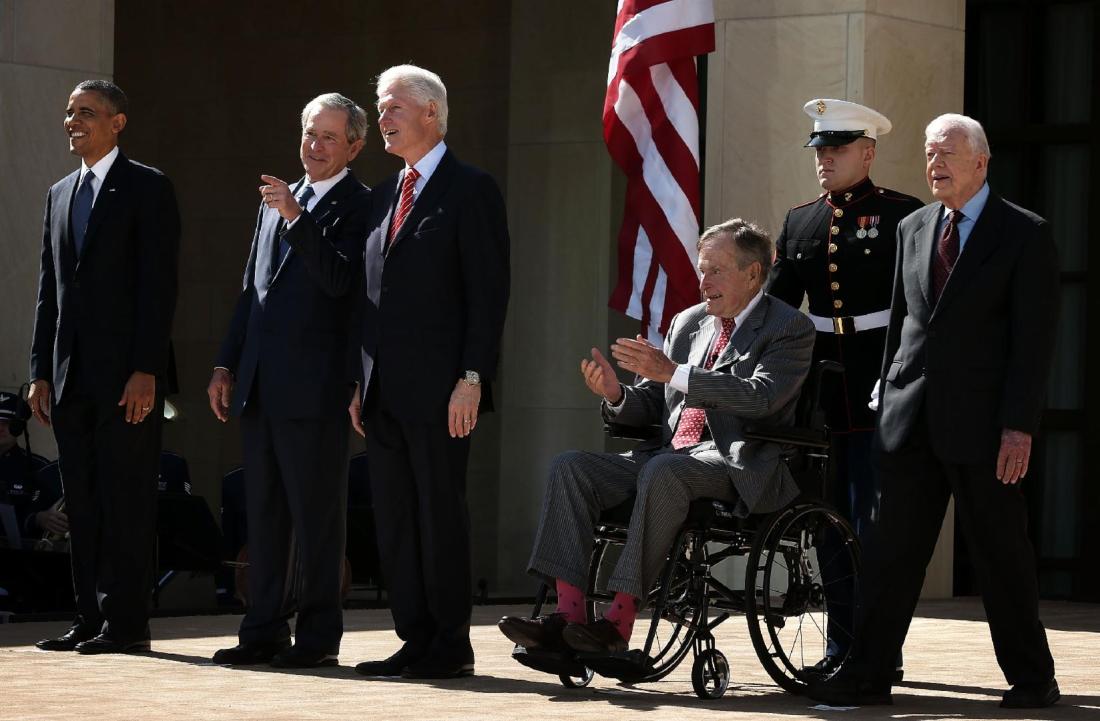
Despite Trump's claim, NARA -- not Bush himself -- transported the records to the former bowling alley, according to standard procedures.
"Under no circumstances did the National Archives lose control of these records," Naftali said. "The former president is misleading the public."
Hufbauer added: "Storing documents that are professionally managed by archivists and have various security arrangements is quite different from keeping presidential records in a personal residence. They are totally different things."
NARA also managed Clinton's documents while they were at a temporary storage facility that was once the Balch Motor Company in Little Rock, Arkansas; the younger Bush's records at a library facility in Lewisville, Texas; and Obama's files at a former furniture store in Hoffman Estates, Illinois.
Hufbauer said almost all records categorized as top secret or above top secret are secured in or near Washington rather than in the temporary storage facilities.
Meanwhile, a Justice Department photo of the documents allegedly found at Trump's residence shows several papers with such classifications.
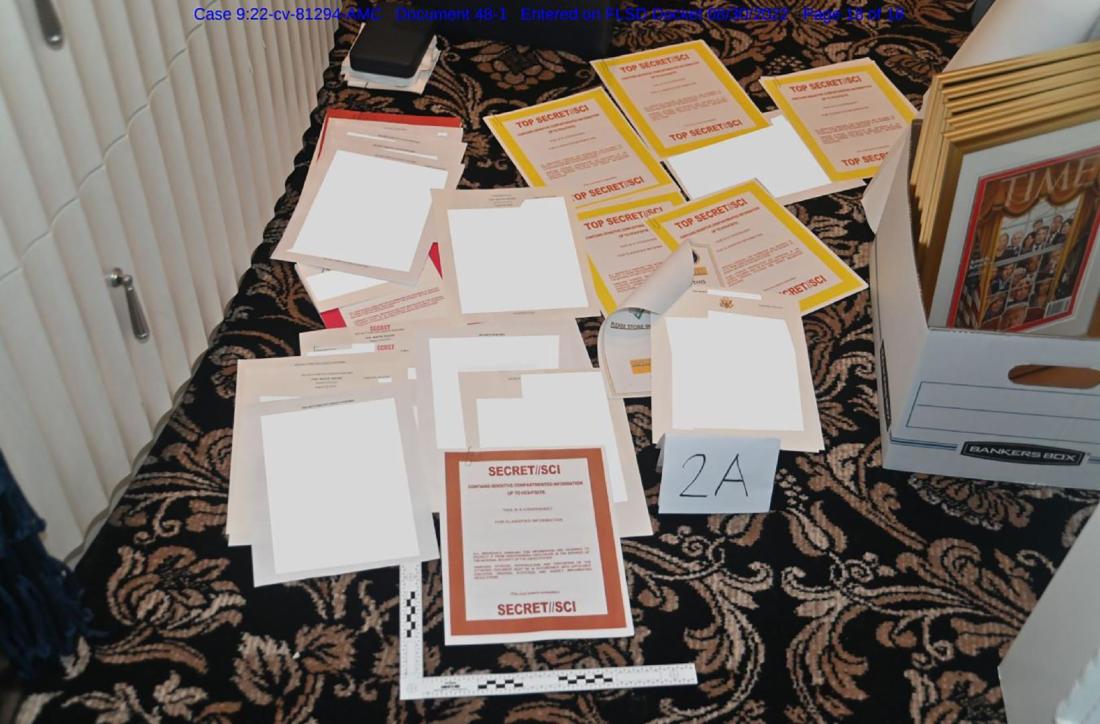
"The National Archives was not taking care of records at Mar-a-Lago, they were not in a place where they could be preserved, and they certainly were not secure," Naftali said. "So there are no parallels here."
Copyright © AFP 2017-2026. Any commercial use of this content requires a subscription. Click here to find out more.
Is there content that you would like AFP to fact-check? Get in touch.
Contact us



